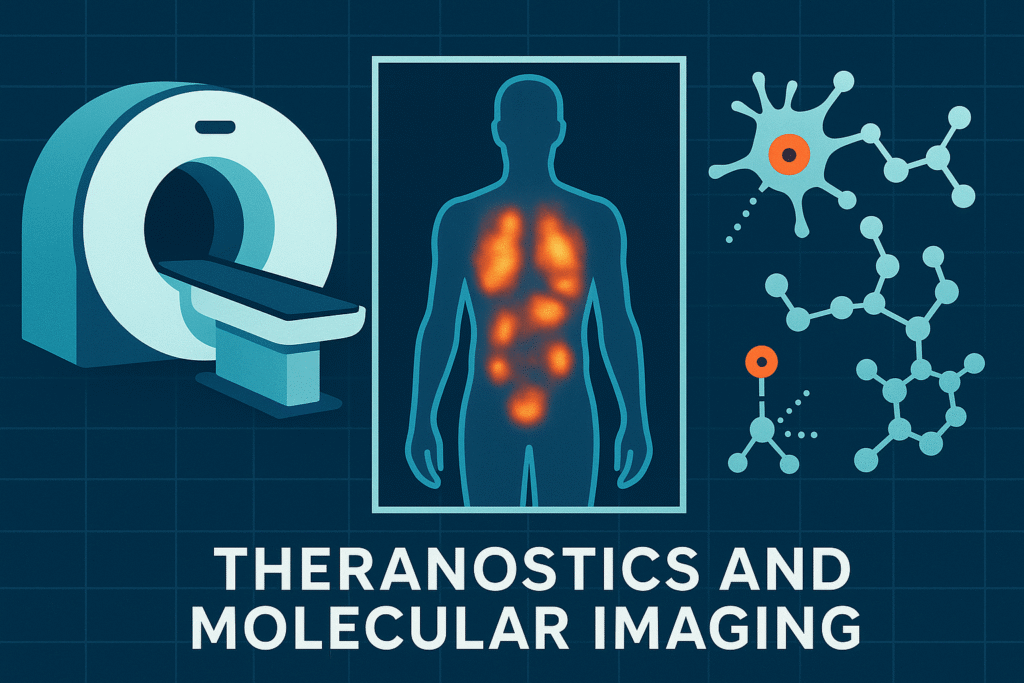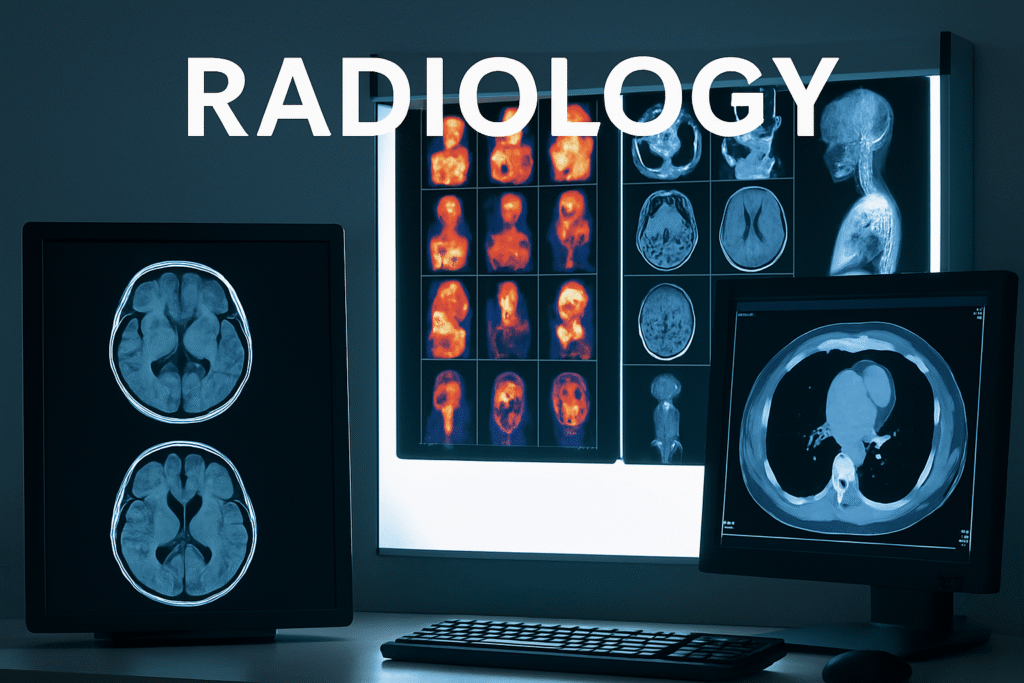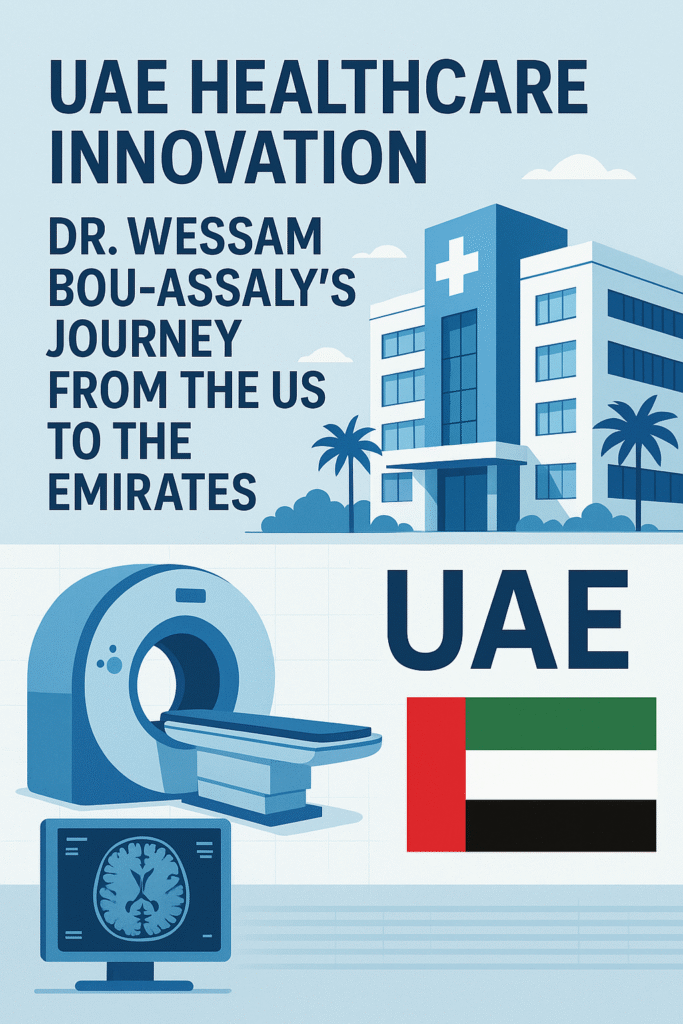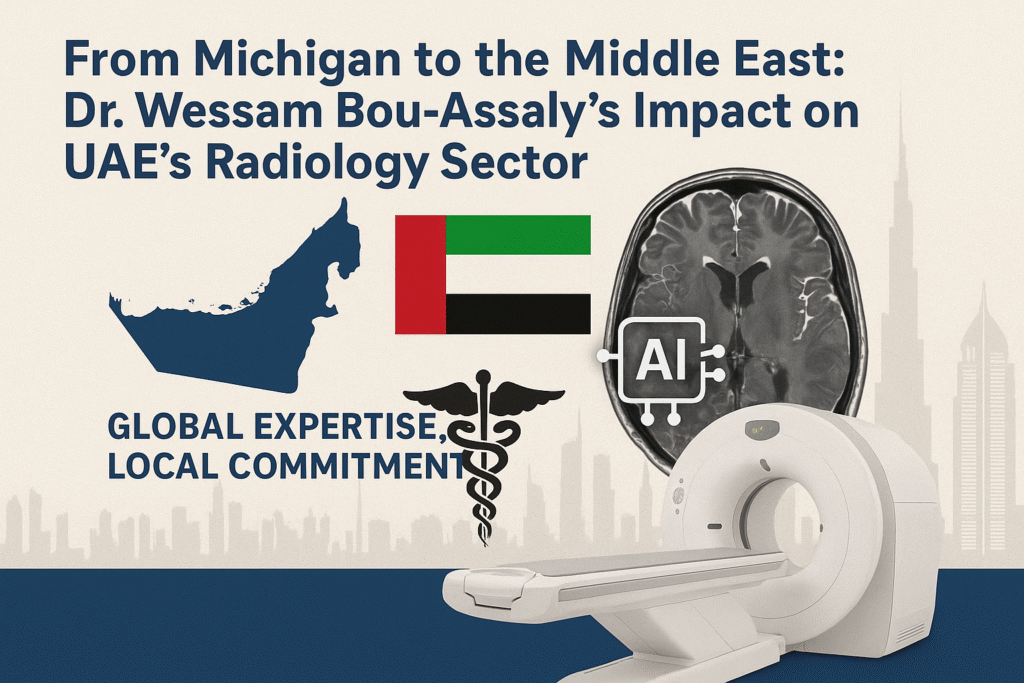What Is Radiology? A Deep Dive with Dr Wessam Bou Assaly
Radiology is one of the most transformative fields in modern medicine—quietly revolutionizing how we diagnose, monitor, and treat disease. From detecting tumors and fractures to guiding life-saving interventions, radiology plays a vital role in virtually every branch of healthcare. Among the experts leading this discipline is Dr Wessam Bou Assaly, a renowned radiologist known for his advanced imaging techniques and patient-centered approach.But what exactly is radiology? And what do radiologists like Wessam Bou Assaly actually do? What Is Radiology?Radiology is a medical specialty that uses imaging technologies to view the internal structures of the body. These images help physicians diagnose, monitor, and treat a wide range of conditions—from broken bones and heart disease to cancer and neurological disorders.The most commonly used radiology techniques include: X-rays: Ideal for viewing bones, chest, and dental issues. CT scans (Computed Tomography): Cross-sectional images offering more detail than standard X-rays. MRI (Magnetic Resonance Imaging): Excellent for imaging soft tissues, the brain, spinal cord, and joints. Ultrasound: Non-invasive imaging using sound waves, commonly used in pregnancy, vascular studies, and abdominal scans. PET scans (Positron Emission Tomography): Powerful imaging often used in cancer, brain, and heart assessments. Fluoroscopy: Real-time moving X-ray used for procedures like barium studies or catheter placements. In essence, radiology provides the eyes that help doctors see inside the body without surgery. What Do Radiologists Do?Radiologists are medical doctors who specialize in interpreting medical images and using imaging to perform minimally invasive procedures. While they may not always be in direct contact with patients, their expertise is critical in making accurate diagnoses and guiding treatment decisions.According to Dr Wessam Bouassaly, the role of a radiologist is far more than reading scans. It includes: 1. Image InterpretationRadiologists analyze X-rays, MRIs, CT scans, and other diagnostic images to detect abnormalities. Whether it’s a hidden fracture, a tumor, or a neurological condition, radiologists help pinpoint the problem with precision. 2. Diagnosis SupportAfter interpreting the images, radiologists work closely with primary care physicians, surgeons, and specialists to recommend further investigations or treatment plans. 3. Interventional RadiologyThis is where Dr. Wessam Bou Assaly excels. In this subfield, radiologists perform procedures using imaging guidance. These may include: Tumor ablation Biopsies Angioplasty Embolization (blocking blood flow to tumors or aneurysms) Drain placements Interventional radiologists use catheters, needles, and wires guided by imaging to treat conditions with minimal invasion, reduced pain, and faster recovery. 4. TheranosticsA growing area that combines diagnosis and therapy—especially in cancer care. Radiologists like Wessam bou assaly are using radiolabeled molecules to both detect and treat tumors, providing highly personalized and effective solutions. Why Radiology Matters in Modern MedicineThe insights gained through radiology are essential for early disease detection, accurate staging, and precise monitoring of treatment outcomes. With tools like AI-enhanced imaging, robotic assistance, and molecular diagnostics, radiology is no longer just a support service—it’s central to personalized and preventative healthcare.Dr. Wessam Bouassaly believes that radiologists are not just image readers—they are strategic partners in patient care, helping other doctors make informed and timely decisions. He emphasizes that advancements in radiology, particularly in interventional techniques and artificial intelligence, will continue to shape the future of healthcare. ConclusionRadiology is the backbone of modern diagnostics, offering a non-invasive window into the body’s most hidden conditions. Radiologists like Dr Wessam Bou Assaly are at the forefront of this evolving specialty, interpreting images with unmatched accuracy and using them to guide cutting-edge treatments.From X-rays to robotic interventions, from image interpretation to interventional procedures, Wessam Bou Assaly and his colleagues are redefining how medicine sees—and treats—the human body. Their expertise ensures that behind every scan, there’s a story understood, a diagnosis made, and a life possibly saved.
What Is Radiology? A Deep Dive with Dr Wessam Bou Assaly Read More »




